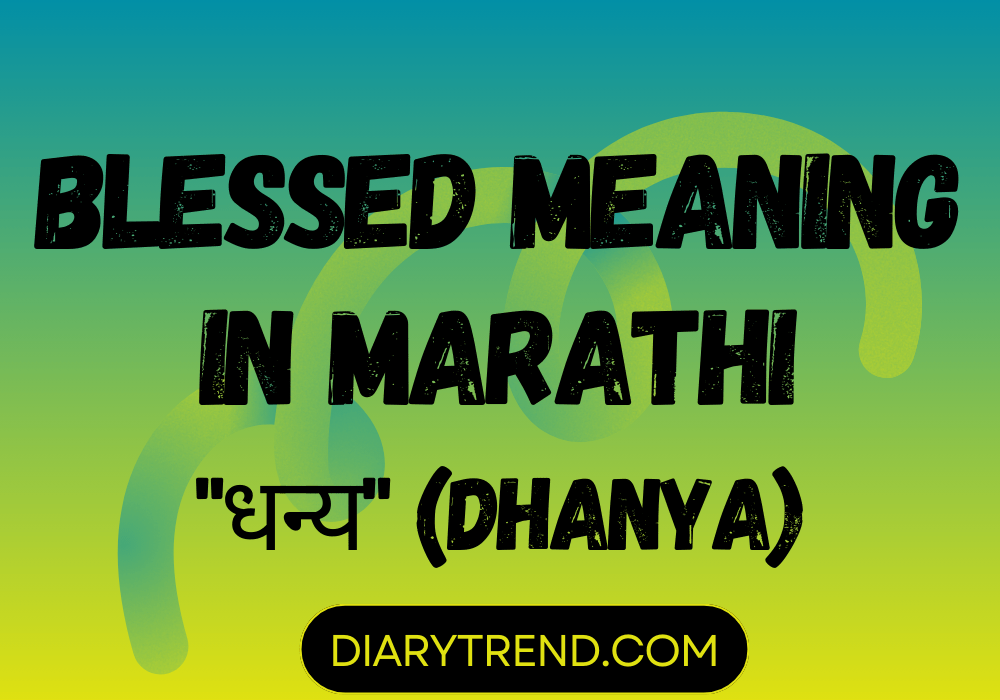The term “धन्य” (Dhanya) holds a profound significance within the Marathi language and culture, encapsulating a rich tapestry of meanings that span the spiritual, emotional, and everyday realms of life. This article delves into the multifaceted essence of “धन्य,” exploring its spiritual connotations, cultural significance, linguistic nuances, and its application in daily life, thereby offering a comprehensive understanding of this deeply resonant term.
Spiritual Connotations
In the spiritual context, “धन्य” is a term that embodies a deep sense of gratitude and sanctity. It is often used to express a feeling of being blessed by the divine or the universe. This expression is not limited to the confines of religious rituals; it extends to a personal sense of connection with a higher power or the essence of life itself. It conveys a profound appreciation for divine grace and the myriad blessings bestowed upon individuals, whether in the form of good health, prosperity, or spiritual enlightenment.
The usage of “धन्य” in spiritual discourse encourages a mindset of gratitude and humility, reminding individuals of the greater forces at play and the importance of acknowledging and appreciating the blessings in one’s life. It fosters a sense of contentment and peace, pivotal elements in the pursuit of spiritual growth and enlightenment.
Cultural Significance
“धन्य” also captures the essence of Marathi culture’s emphasis on gratitude and reverence. It is a reflection of the deeply ingrained values of respect for elders, nature, and the divine, which are central to Marathi and broader Indian cultures. The term encapsulates a cultural ethos that values acknowledgment of the good received from others and the universe.
In cultural celebrations, festivals, and rituals, “धन्य” is frequently invoked to express collective gratitude for blessings received and to seek continued divine favor. It is a word that binds communities together in shared expressions of thankfulness and reverence, reinforcing social bonds and cultural identity.
Linguistic Nuances
Linguistically, “धन्य” is a versatile term that can be adapted to various contexts, reflecting the richness of the Marathi language in conveying subtle emotional and spiritual nuances. It can describe a person, a feeling, or a situation, illustrating the language’s capacity to capture the complexity of human experience. The word can be used in formal and informal settings, showcasing its adaptability and the depth of expression possible within the Marathi linguistic framework.
Application in Daily Life
Beyond its spiritual and cultural dimensions, “धन्य” finds resonance in the everyday lives of the Marathi-speaking populace. It is used to express gratitude for simple pleasures and fortunes, from the joy of sharing a meal with loved ones to the relief of overcoming a difficult situation. The term reinforces the importance of acknowledging and cherishing the positive aspects of life, promoting an attitude of gratitude and positivity.
In personal interactions, saying someone is “धन्य” is a profound compliment, indicating that they are a blessing in one’s life. It can also be an expression of hope or a blessing, wishing someone well in their endeavors and life’s journey. This usage underscores the term’s role in fostering positive relationships and communal harmony.
Conclusion
The word “धन्य” embodies a complex array of meanings and associations that are integral to the Marathi language and culture. It serves as a bridge between the spiritual and the mundane, the individual and the communal, encapsulating a worldview that values gratitude, humility, and reverence. Through its multifaceted applications, “धन्य” enriches the Marathi lexicon, offering a nuanced tool for expressing a wide range of emotions and states of being. Its significance transcends linguistic boundaries, offering insights into the values and ethos of Marathi culture and, by extension, the universal human experience of seeking and recognizing the blessings in life.
